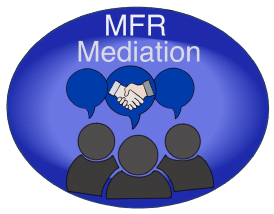In a world filled with conflicts, misunderstandings, and disputes, the art of mediation can help parties reach a resolution outside of the courtroom. Mediation offers a collaborative approach to resolving conflicts that empowers individuals to find mutually beneficial solutions. In this blog, we’ll explore the essence of mediation, its benefits, and why it’s a valuable tool for navigating conflicts outside of the courtroom.
Understanding Mediation
At its core, mediation is a facilitated negotiation process where a neutral third party, the mediator, helps disputing parties communicate effectively, understand each other’s perspectives, and reach a voluntary agreement. Unlike litigation, where a judge imposes a decision, mediation puts the power to craft a solution back into the hands of the parties involved.
Benefits of Mediation
1. Empowerment: Mediation empowers individuals to actively participate in crafting solutions tailored to their unique needs and interests, fostering a sense of ownership over the outcome.
2. Cost-Effective: Compared to litigation, which can be time-consuming and expensive, mediation is often more cost-effective, saving both time and resources.
3. Confidentiality: Mediation proceedings are confidential, providing a safe space for parties to explore creative solutions without fear of their words being used against them in court.
4. Flexibility and Creativity: Mediation allows for flexible and creative solutions that may not be possible in a courtroom setting, enabling parties to address underlying interests.
Mediation is widely used in resolving family conflicts such as distribution of property, alimony, and child custody arrangements, offering a more amicable and less emotionally taxing alternative to litigation.
Mediation is also utilized in various legal contexts, including civil disputes, personal injury cases, and business conflicts, offering parties a chance to resolve their differences outside of court.
